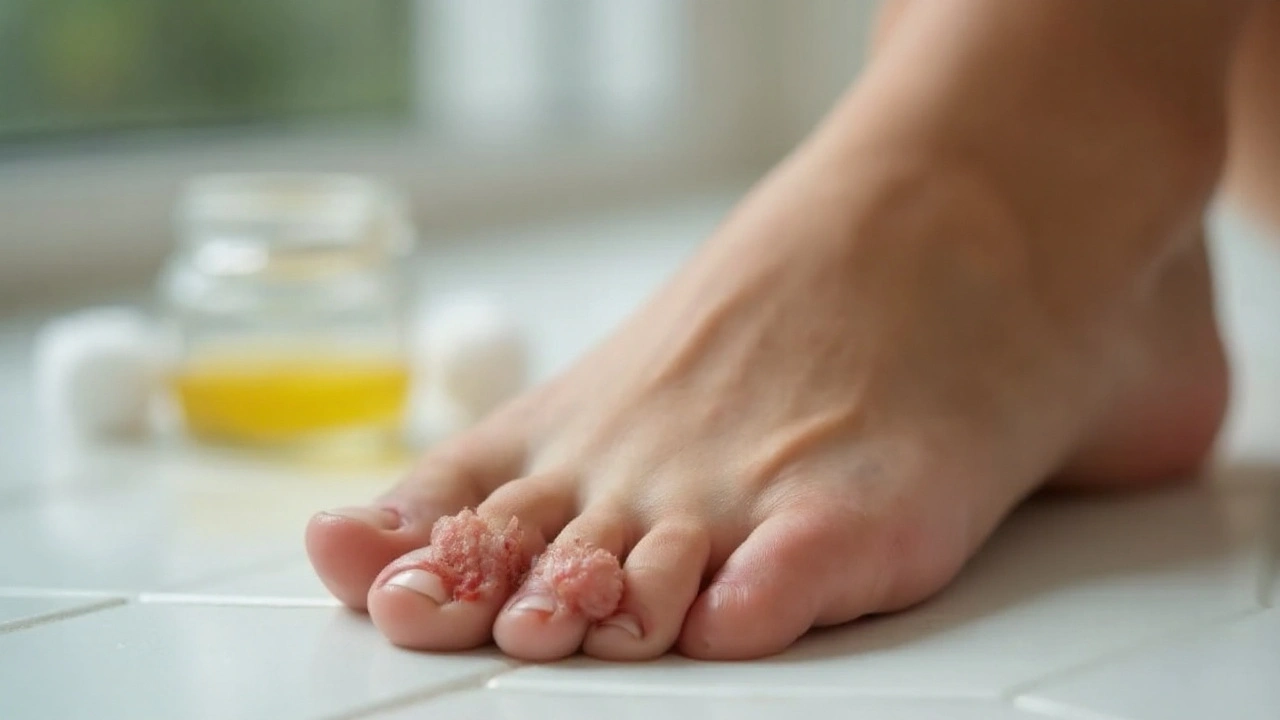Skin Inflammation: Quick Facts and Practical Relief
Ever notice a red, itchy patch that just won’t quit? That’s skin inflammation, and it can pop up for many reasons. Understanding what’s behind the flare helps you calm it faster and avoid future trouble.
Common Triggers
Most skin inflammation is a reaction to something that irritates the barrier. Everyday culprits include harsh soaps, detergents, and even certain fabrics like wool. Allergens such as pollen, pet dander, or nickel can spark contact dermatitis, while stress and hormonal swings often aggravate eczema.
Infections are another driver. Bacterial or fungal overgrowth can turn a minor scrape into a painful, inflamed sore. Sunburn, too, is a classic example of inflammation caused by UV damage.
Simple Relief Strategies
Start with a gentle cleanser—something fragrance‑free and pH‑balanced. Pat the skin dry; rubbing can worsen irritation. Cool compresses for 10‑15 minutes calm heat and reduce swelling without chemicals.
Over‑the‑counter options like 1% hydrocortisone cream work well for short‑term flare‑ups. If the skin feels dry, a fragrance‑free moisturizer containing ceramides restores the barrier and locks in moisture. For itchy patches, an oral antihistamine can cut the urge to scratch.
Natural helpers also have a place. Aloe vera gel soothes sunburn, while colloidal oatmeal baths ease widespread itch. Just make sure any product you try is labeled for sensitive skin.
If inflammation spreads, the pain intensifies, or you see pus, it’s time to see a professional. Doctors can prescribe stronger steroids, antibiotics, or antifungals, and they’ll check if an underlying condition like psoriasis needs targeted treatment.
Prevention is half the battle. Keep a short list of known triggers and avoid them when possible. Wear soft, breathable fabrics, and keep your skin moisturized even when it looks fine. Regularly wash hands after handling potential allergens, and use lukewarm water instead of hot showers.
Finally, don’t ignore persistent inflammation. Chronic skin issues can signal deeper health problems, such as autoimmune disorders or vitamin deficiencies. A quick visit to your healthcare provider can catch those early.
By spotting the cause, applying the right soothing steps, and knowing when to get help, you can keep skin inflammation under control and enjoy comfortable, healthy skin again.
Psoriasis and Psoriatic Arthritis: Understanding the Autoimmune Link Between Skin and Joints
Psoriatic arthritis is an autoimmune condition that links skin plaques with joint damage. About 30% of psoriasis patients develop it. Early diagnosis and targeted treatments can prevent permanent joint damage and reduce heart risks.
Read moreHydrocortisone for Athlete's Foot: Is It a Good Treatment?
Discover whether hydrocortisone can safely treat athlete's foot, how it works, when to use it, and what alternatives exist.
Read more
